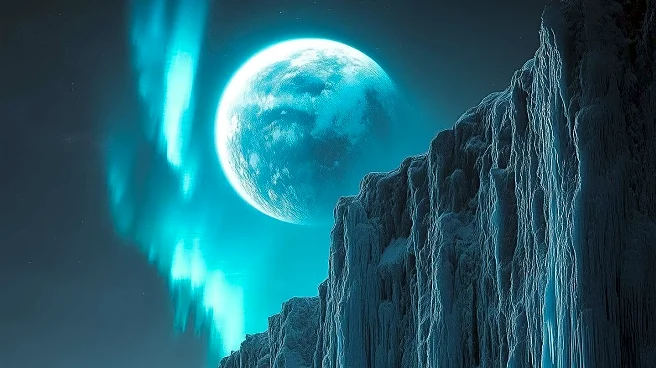What's Happening?
Malcolm Kempt, an attorney turned author, has released his debut novel, 'A Gift Before Dying.' The book is set in a remote Arctic community and follows a disgraced police officer investigating the apparent
suicide of a 16-year-old girl. Kempt, who spent 17 years in the Arctic, draws from his experiences as a criminal trial lawyer in a region with the highest per capita violent crime rate in North America. The novel captures the stark beauty and mysticism of the Arctic, a place Kempt describes as one of the final frontiers on the planet. The protagonist, Eldritch Cole, is inspired by the many men Kempt met in the north, who often stayed longer than intended, drawn by the region's allure.
Why It's Important?
Kempt's novel sheds light on the unique cultural and social dynamics of the Arctic, a region often overlooked in literature. By setting his story in this remote area, Kempt brings attention to the challenges faced by its communities, including high crime rates and mental health issues exacerbated by extreme living conditions. The book also highlights the beauty and mysticism of the Arctic, potentially fostering greater interest and understanding of the region. This narrative could influence public perception and policy regarding Arctic communities, emphasizing the need for support and resources.
What's Next?
As 'A Gift Before Dying' gains readership, it may inspire further literary exploration of the Arctic and its communities. The novel's success could lead to increased awareness and dialogue about the social issues faced by these remote areas. Additionally, Kempt's work might encourage other authors to explore similar themes, contributing to a broader understanding of the Arctic's cultural and environmental significance.
Beyond the Headlines
The novel's exploration of the Arctic's mysticism and beauty, alongside its social challenges, invites readers to consider the ethical and cultural dimensions of life in remote regions. Kempt's portrayal of the Arctic as a place where the 'veil is thin' offers a unique perspective on human connection to nature and the universe. This could lead to a deeper appreciation for the cultural heritage and environmental importance of the Arctic, influencing both literary and environmental discourse.










